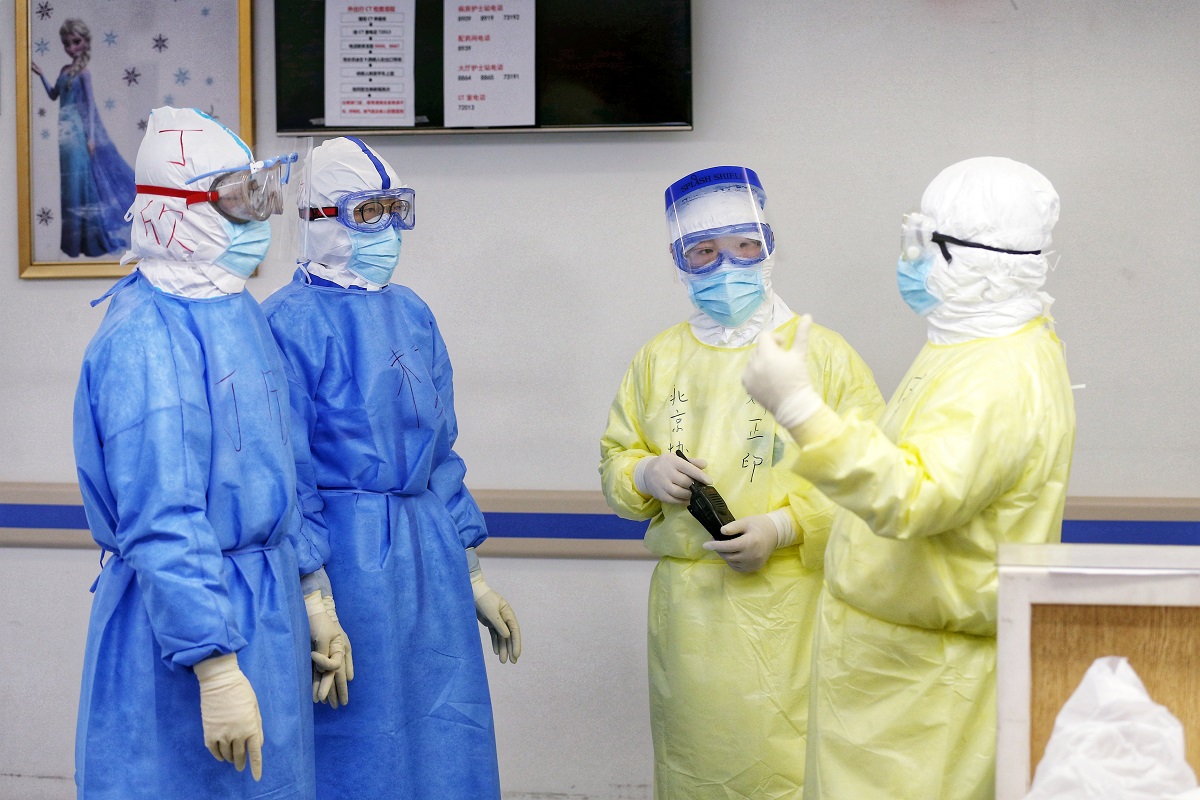Still unexplained
The hunt for the origins of Covid-19 has for the past four years been a tangled web of politics, power struggles, and international finger-pointing.
According to earlier reports, the first Covid patient was a 41-year-old male accountant who lived 30 kilometres south of Huanan Market and reported his ailment on December 8.

Photo: IANS
According to a new study published in the journal Science, the first Covid-19 case — or ‘patient zero’ — was a female seafood vendor at an animal market in Wuhan, China, who became symptomatic on December 11, 2019.
According to earlier reports, the first Covid patient was a 41-year-old male accountant who lived 30 kilometres south of Huanan Market and reported his ailment on December 8.
However, when questioned, the accountant stated that his Covid symptoms began with a fever on December 16 and that his illness on December 8 was caused by a dental issue connected to the retention of baby teeth into adulthood.
Advertisement
“This indicates that he was infected through community transmission after the virus had begun spreading from Huanan Market. He believed that he may have been infected in a hospital (presumably during his dental emergency) or on the subway during his commute,” said Michael Worobey, University of Arizona evolutionary virologist, in the article.
Shortly before his symptoms began, the accountant had also travelled north of Huanan Market.
His symptoms began following many occurrences in Huanan Market workers, with a female seafood vendor there being the first documented case, with illness beginning on December 11.
“Notably, starting December 11, she revealed knowledge of multiple probable Covid-19 cases at clinics and hospitals near Huanan Market, and Huanan Market patients were admitted to Union Hospital as early as December 10,” Worobey added.
It is now known that before the pandemic, live mammals vulnerable to coronaviruses, including raccoon dogs, were sold at Huanan Market and three other live-animal marketplaces in Wuhan.
Severe acute respiratory syndrome-related coronaviruses were found in raccoon dogs during the SARS outbreak, which was facilitated by animal-to-human contact in live-animal markets in China.
“However, because of the early public health focus on Huanan Market, it remains unclear whether the apparent preponderance of hospitalised Covid-19 cases associated with this market was truly reflective of the initial outbreak,” said Michael Worobey, University of Arizona evolutionary virologist and a specialist in the origins of viral epidemics.
With SARS, live-animal marketplaces continued to sell diseased animals for months, allowing zoonotic spillover to be identified as the source and indicating several independent animal-to-human jumps.
“Unfortunately, no live mammal captured from Huanan Market or any other live-animal market in Wuhan has been screened for SARS-CoV-2-related viruses,” according to the report. “Huanan Market was closed and disinfected on January 1, 2020.”
Nonetheless, the fact that the majority of early symptomatic cases were related to Huanan Market — notably the western section, where raccoon dogs were caged — provides strong evidence of the pandemic’s beginning in a live-animal market, according to the study.
Advertisement